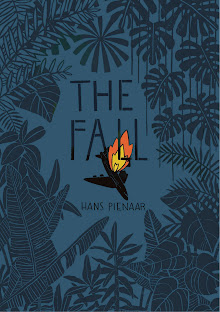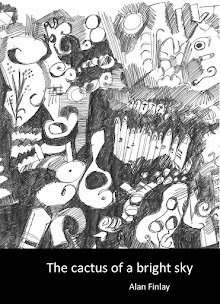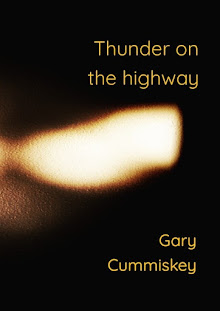Green Dragon 7, to be published in May next year, is to be a special edition of short fiction only, and will be guest edited by Arja Salafranca.
Submit, by hard copy, no more than three items of short fiction, in English, between 2500 and 6000-7000 words. There is no theme.
These should be mailed, with an SASE included, as well as a contactable day number and an email address to Arja Salafranca, PO Box 1171, Bromhof 2154, South Africa.
Manuscripts without an SASE will not returned, and no correspondence will be entered into about rejected stories.
Submission deadline is the end of October 2009. Successful authors will receive a contributors’ copy.
Monday, 04 May 2009
Friday, 01 May 2009
South Africa unbowed
South Africa may have so far escaped the worst of the global economic crisis, but its effects are certainly being felt. Businesses are struggling and redundancies are on the increase. Late last year, the local book trade got a bit of shock when the Fascination Books chain went into liquidation. After all, with its 43 stores and 400 staff, Fascination was ranked the third-largest book chain in South Africa.
But one also has to contextualise the situation. First, Fascination Books was an independently owned chain and had been struggling financially for some time. Second, it focused on Christian and Afrikaans titles, thus aiming at a niche market. The books it stocked were also mainly remainders, with very few new titles. Yet while Fascination’s collapse is obviously not indicative of the state of the book market as a whole, some booksellers have viewed it as a wake-up call.
For the year ahead, local publishers are taking a cautious approach. Stephen Johnson, managing director of Random House Struik, says that there are no plans to cut back on existing projects, but new projects will be considered very carefully. Random House Struik has not seen a drop in sales of big titles, but as far as backlists are concerned, there has been a decline in orders.
Bridget Impey from independently owned Jacana Media takes a similar view in that while the publisher does not intend dropping the number of books it plans to put out, at the same time there can be no question marks about the success of a prospective title and there cannot be nice-to-haves. Whatever Jacana publishes this year has to work and there can be no risk-taking.
Impey does, however, point out that the book industry is protected slightly during an economic downturn, as while consumers will have to cut back on expensive luxuries such as overseas holidays, they can still buy books. “It’s the lipstick effect,” says Impey. “It makes you feel good and it doesn’t cost much.”
This cautious, but certainly not pessimistic, approach is also evident among the bookstores. Andrew Marjoribanks, managing director of the Wordsworth book chain in the Western Cape, says that bookstores in South Africa, unlike those in the UK for example, do not have to contend with competition from the supermarkets, so there is a bit of a cushioning effect.
Exclusive Books marketing manager Batya Green-Bricker also says that the national chain has not experienced much of a drop in sales. Book clubs are ordering fewer titles, but are definitely still ordering, and there has been an increase in sales of popular, bestseller-type titles. Book buyers are playing it safe, says Green-Bricker, buying well-known, established authors such as Wilbur Smith rather than new names.
So for most of the book trade, it looks like business as usual, but with caution required all round.
(Published in the print edition of The Bookseller, April 10, 2009)
But one also has to contextualise the situation. First, Fascination Books was an independently owned chain and had been struggling financially for some time. Second, it focused on Christian and Afrikaans titles, thus aiming at a niche market. The books it stocked were also mainly remainders, with very few new titles. Yet while Fascination’s collapse is obviously not indicative of the state of the book market as a whole, some booksellers have viewed it as a wake-up call.
For the year ahead, local publishers are taking a cautious approach. Stephen Johnson, managing director of Random House Struik, says that there are no plans to cut back on existing projects, but new projects will be considered very carefully. Random House Struik has not seen a drop in sales of big titles, but as far as backlists are concerned, there has been a decline in orders.
Bridget Impey from independently owned Jacana Media takes a similar view in that while the publisher does not intend dropping the number of books it plans to put out, at the same time there can be no question marks about the success of a prospective title and there cannot be nice-to-haves. Whatever Jacana publishes this year has to work and there can be no risk-taking.
Impey does, however, point out that the book industry is protected slightly during an economic downturn, as while consumers will have to cut back on expensive luxuries such as overseas holidays, they can still buy books. “It’s the lipstick effect,” says Impey. “It makes you feel good and it doesn’t cost much.”
This cautious, but certainly not pessimistic, approach is also evident among the bookstores. Andrew Marjoribanks, managing director of the Wordsworth book chain in the Western Cape, says that bookstores in South Africa, unlike those in the UK for example, do not have to contend with competition from the supermarkets, so there is a bit of a cushioning effect.
Exclusive Books marketing manager Batya Green-Bricker also says that the national chain has not experienced much of a drop in sales. Book clubs are ordering fewer titles, but are definitely still ordering, and there has been an increase in sales of popular, bestseller-type titles. Book buyers are playing it safe, says Green-Bricker, buying well-known, established authors such as Wilbur Smith rather than new names.
So for most of the book trade, it looks like business as usual, but with caution required all round.
(Published in the print edition of The Bookseller, April 10, 2009)
Labels:
Gary Cummiskey,
The Bookseller
Subscribe to:
Posts (Atom)









